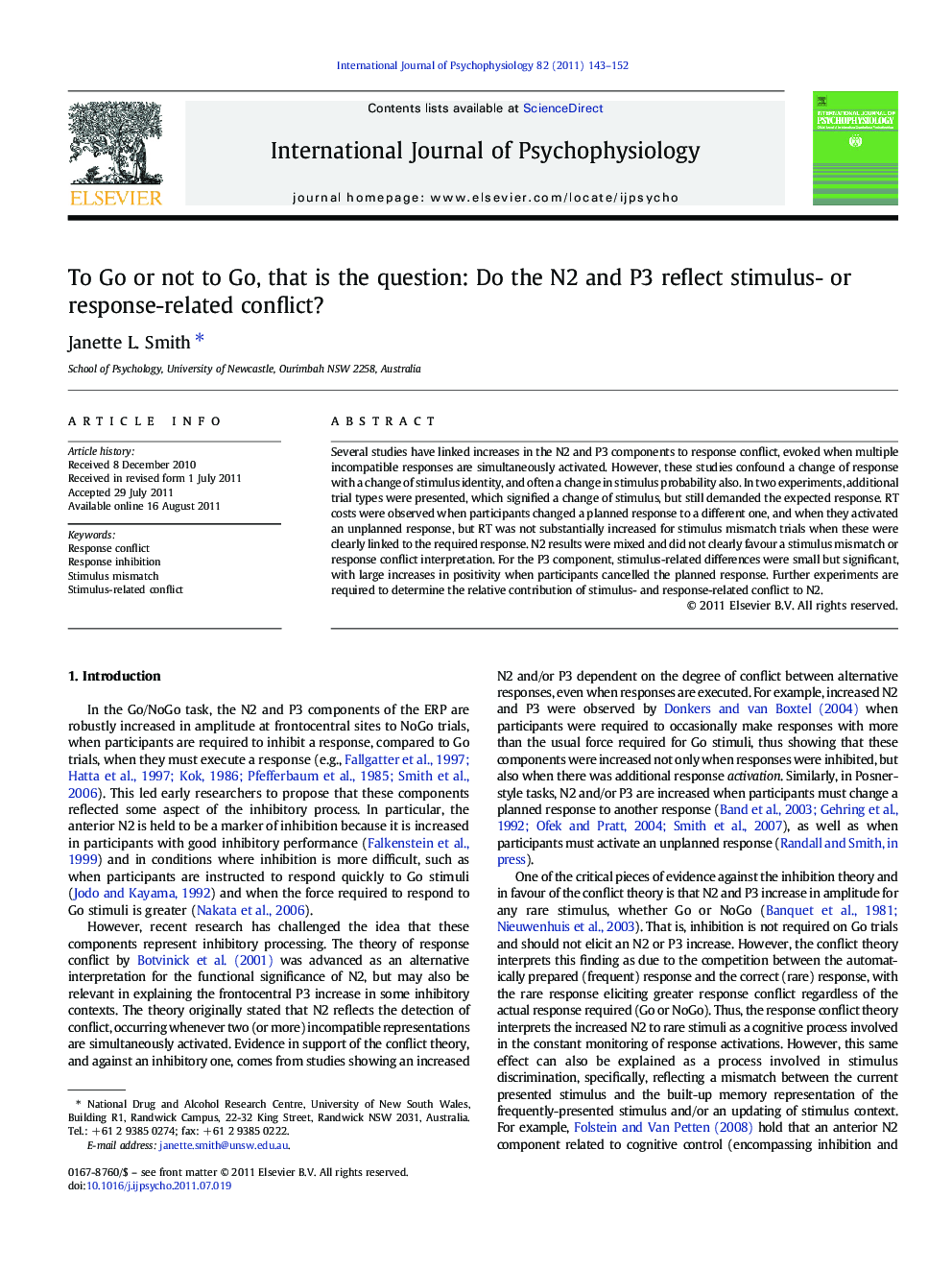| Article ID | Journal | Published Year | Pages | File Type |
|---|---|---|---|---|
| 930441 | International Journal of Psychophysiology | 2011 | 10 Pages |
Several studies have linked increases in the N2 and P3 components to response conflict, evoked when multiple incompatible responses are simultaneously activated. However, these studies confound a change of response with a change of stimulus identity, and often a change in stimulus probability also. In two experiments, additional trial types were presented, which signified a change of stimulus, but still demanded the expected response. RT costs were observed when participants changed a planned response to a different one, and when they activated an unplanned response, but RT was not substantially increased for stimulus mismatch trials when these were clearly linked to the required response. N2 results were mixed and did not clearly favour a stimulus mismatch or response conflict interpretation. For the P3 component, stimulus-related differences were small but significant, with large increases in positivity when participants cancelled the planned response. Further experiments are required to determine the relative contribution of stimulus- and response-related conflict to N2.
► Most putative conflict studies confound change of stimulus with change of response. ► Examined stimulus- and response-related effects on N2 and P3 ERP components. ► Reaction time costs are mostly response-related in Posner-style cued-Go/NoGo tasks. ► P3 increased only when a planned response was inhibited. ► N2 results equivocal regarding stimulus- or response-related locus.
